
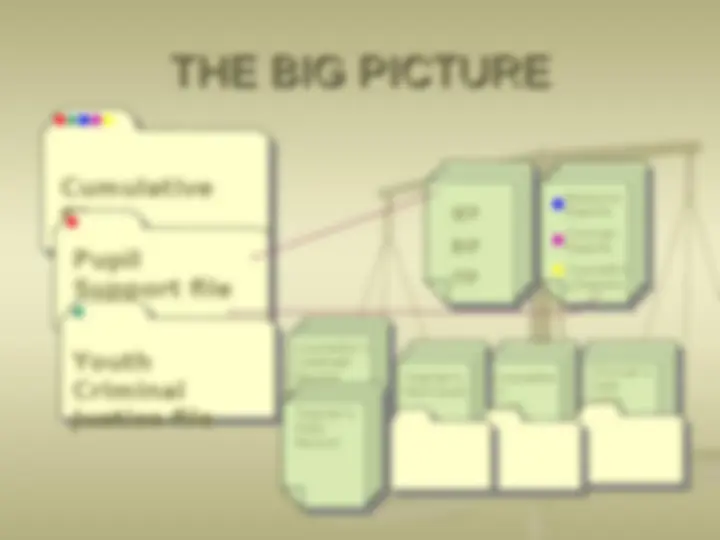
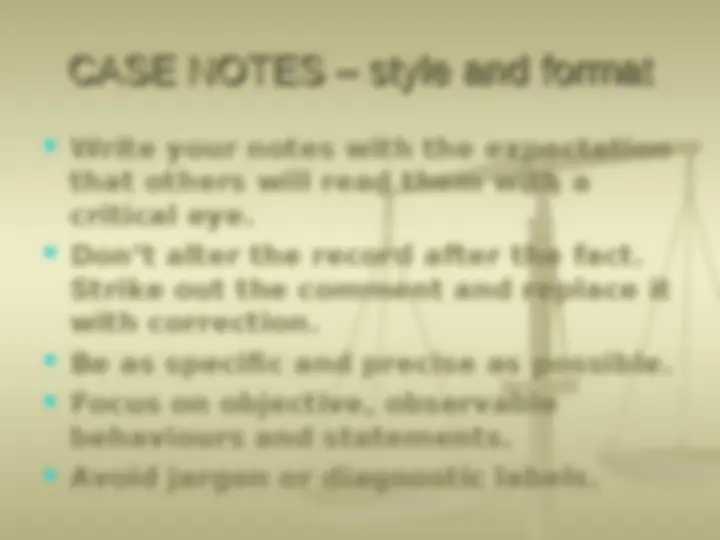
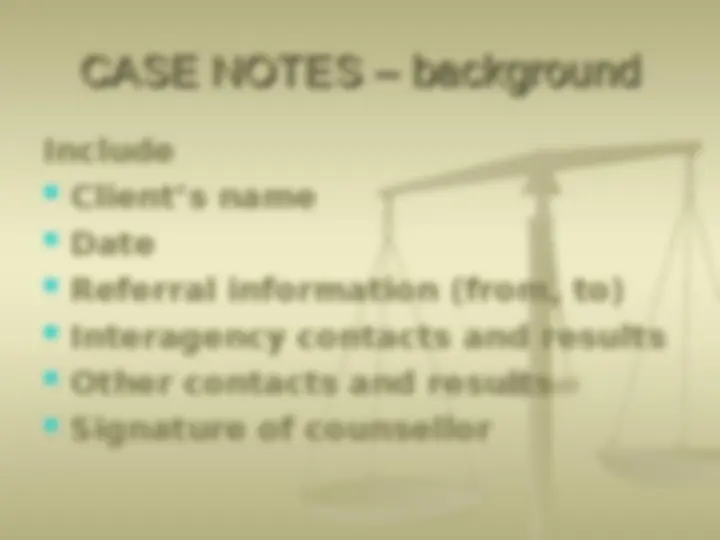
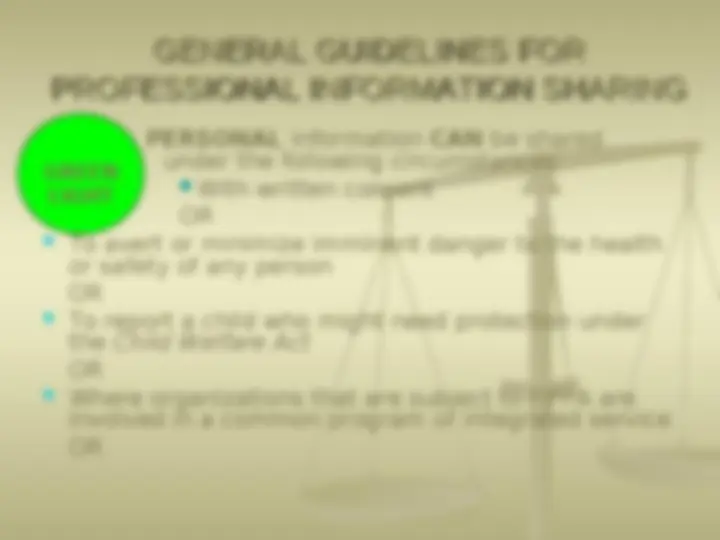
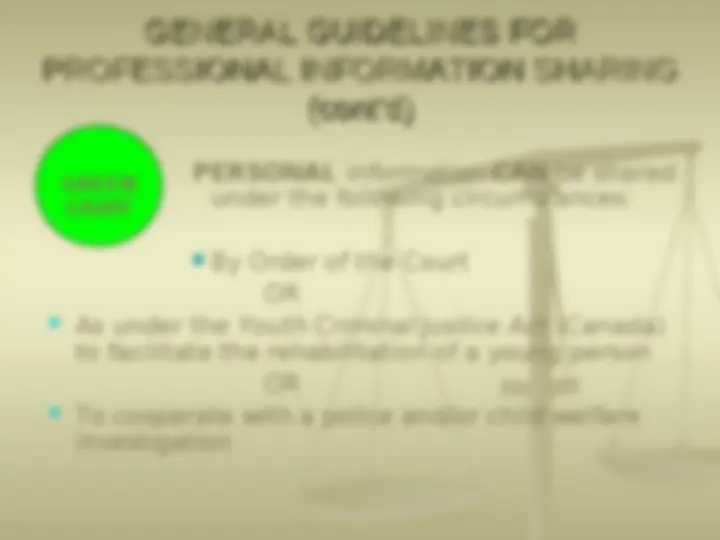
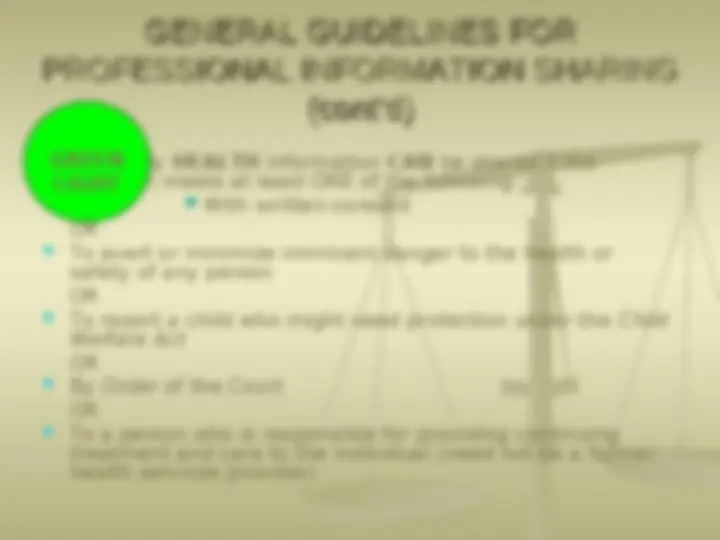
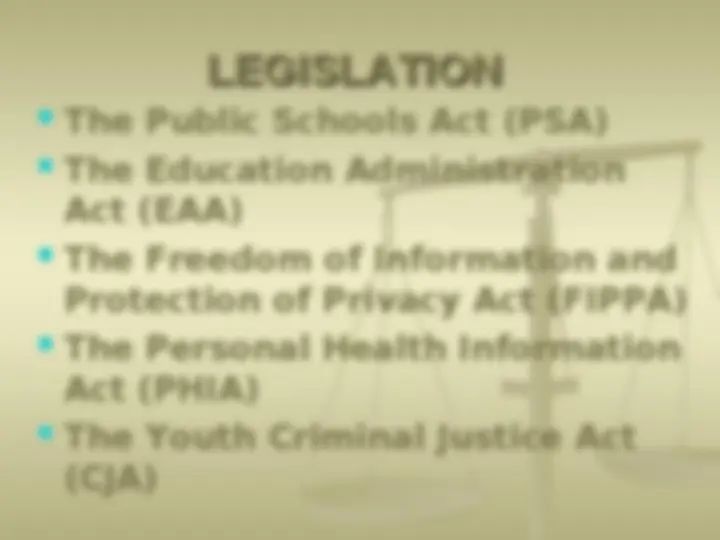
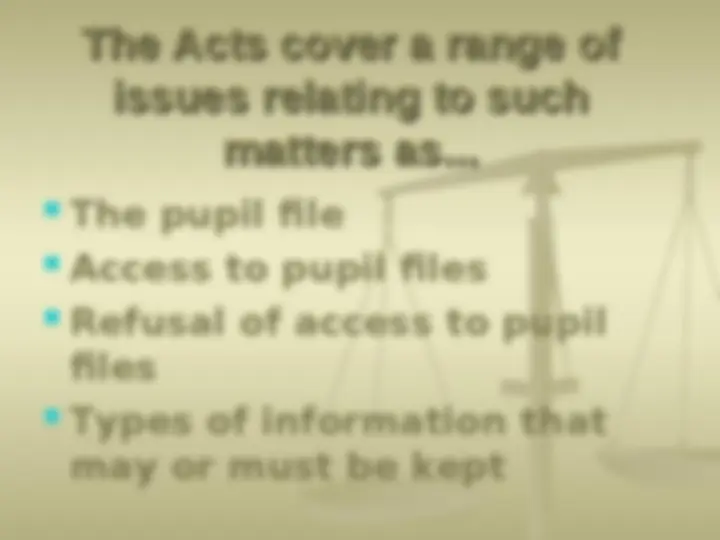
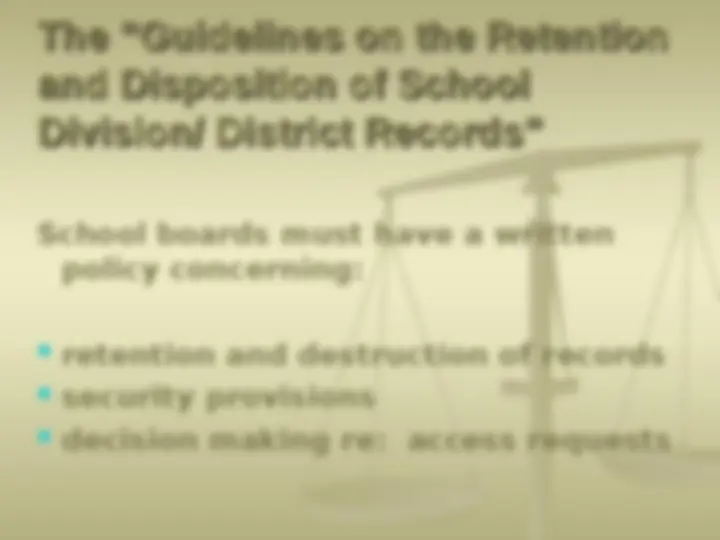
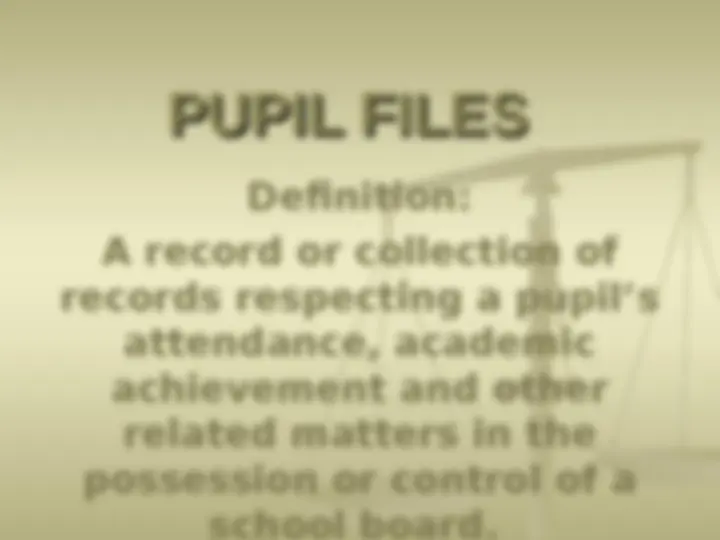
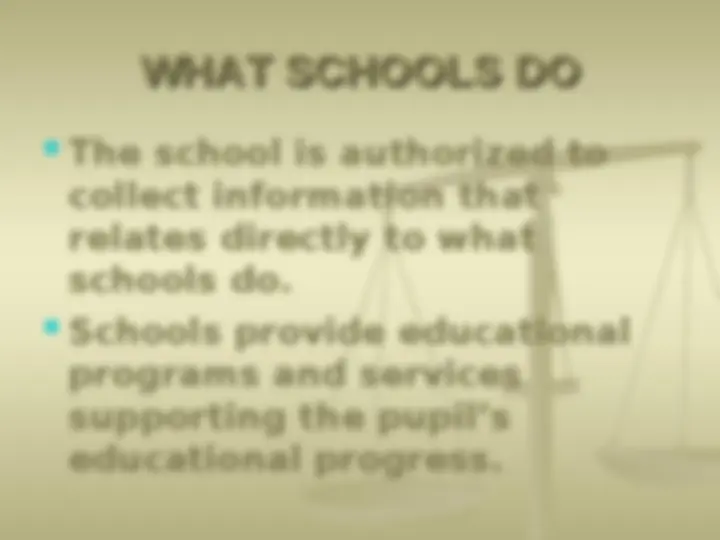
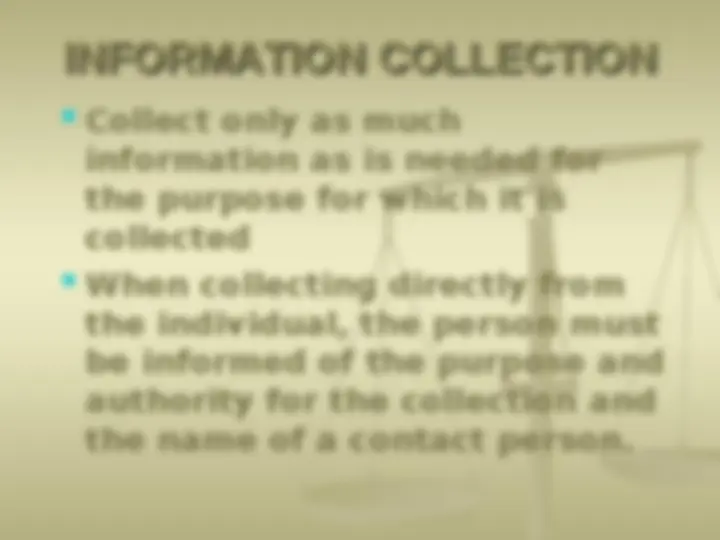
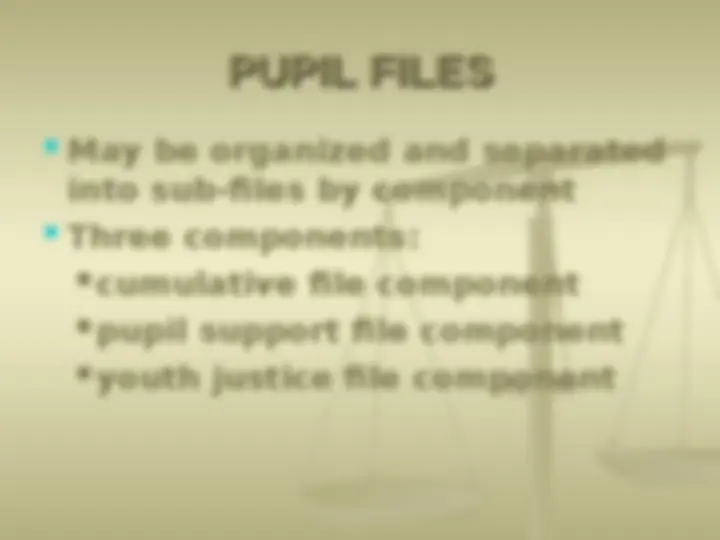
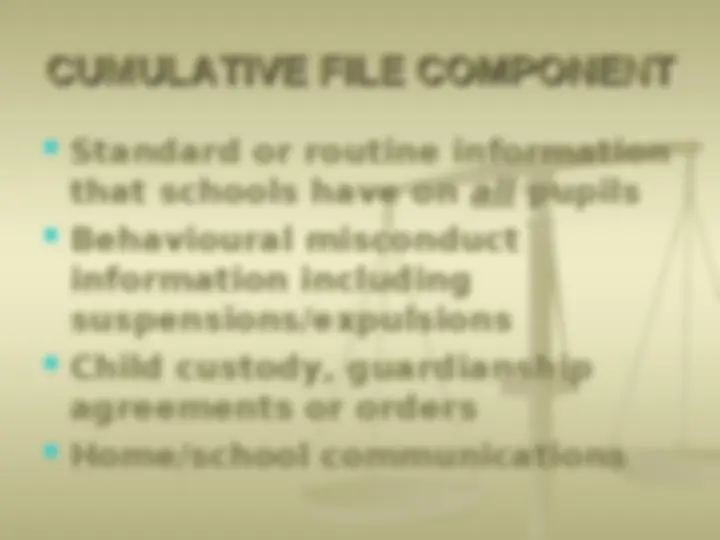
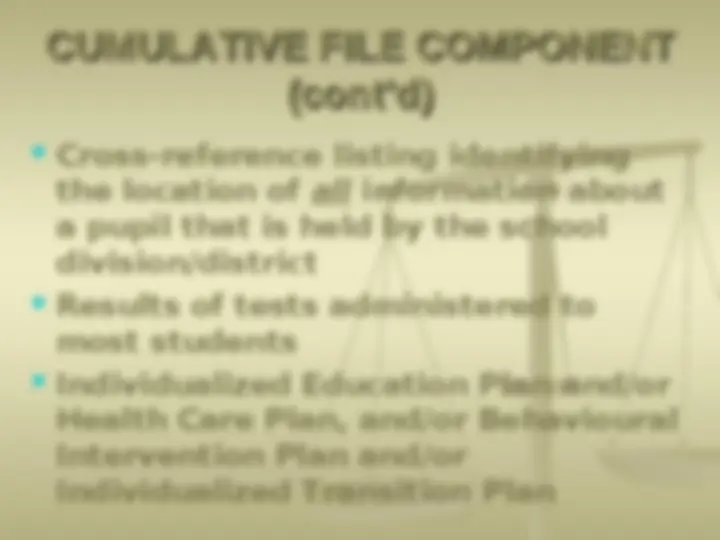
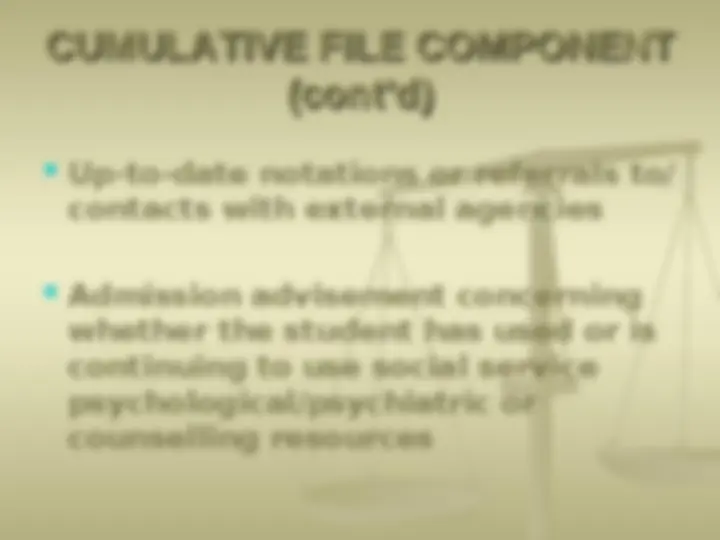
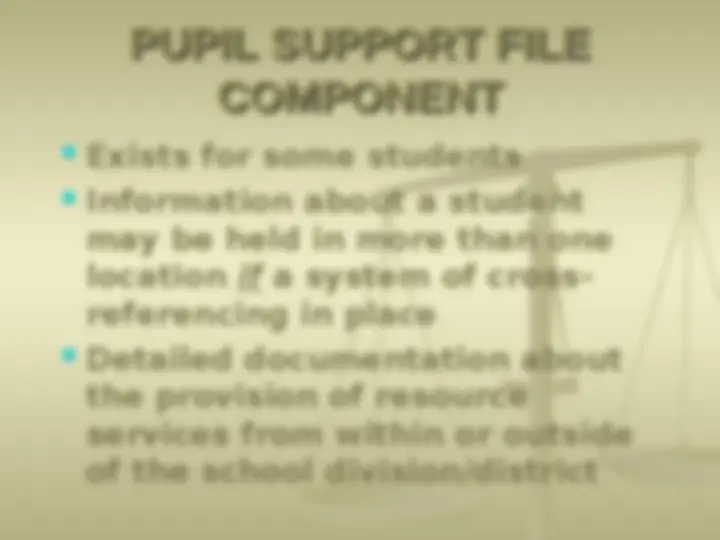
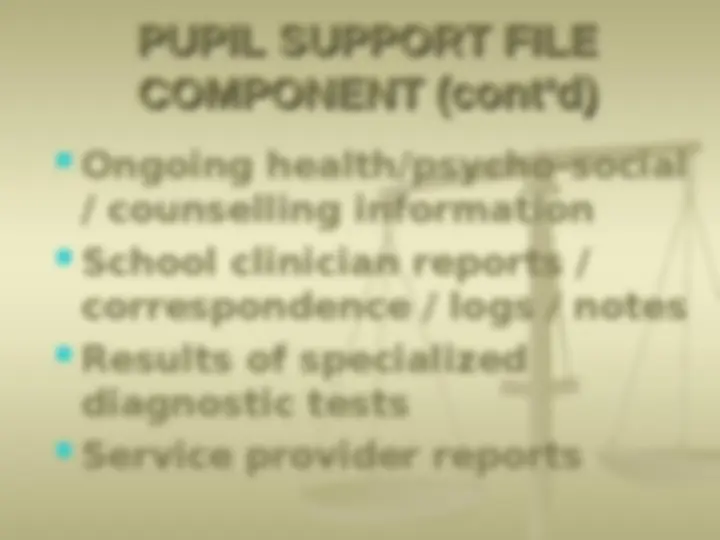
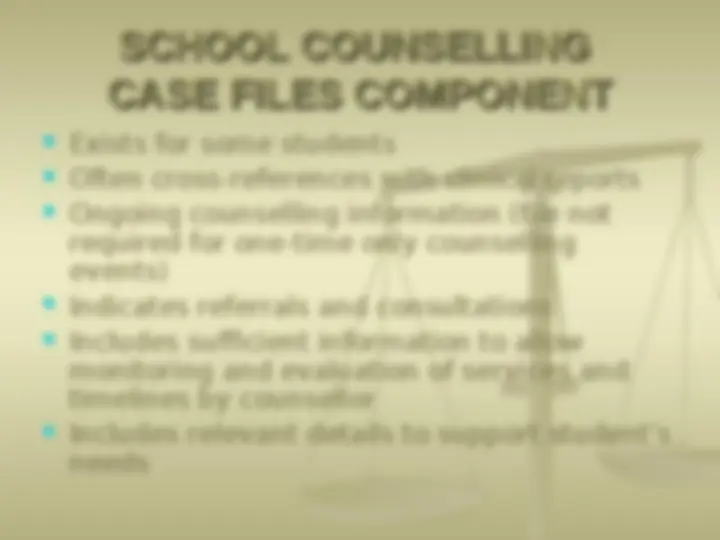
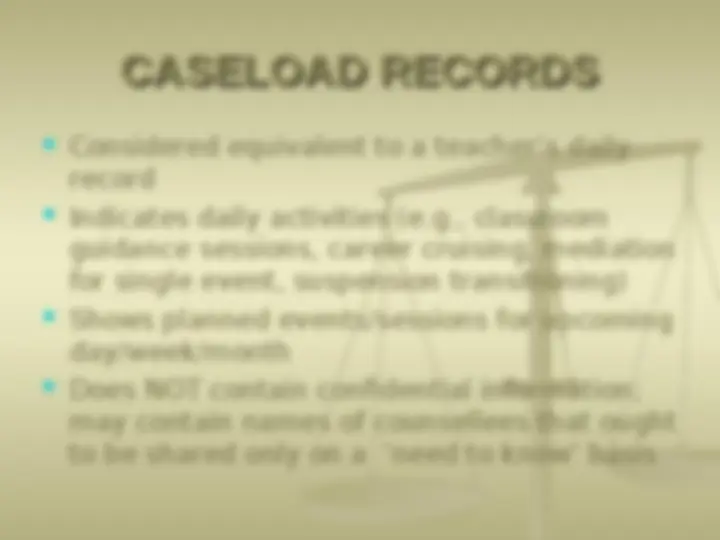
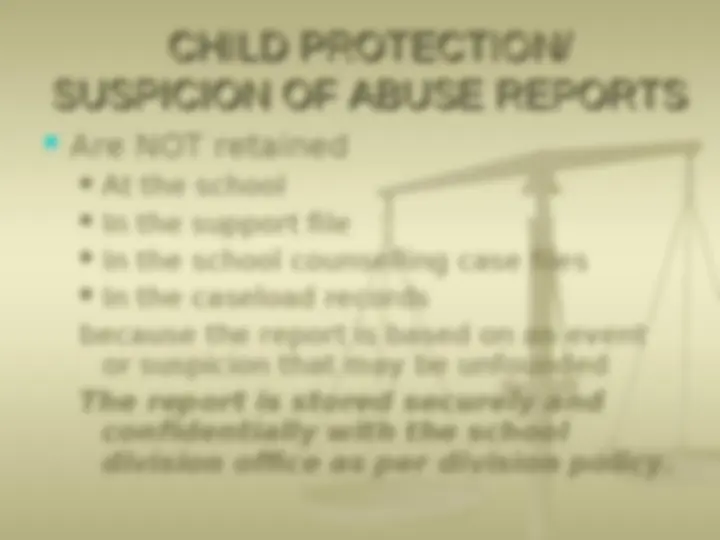
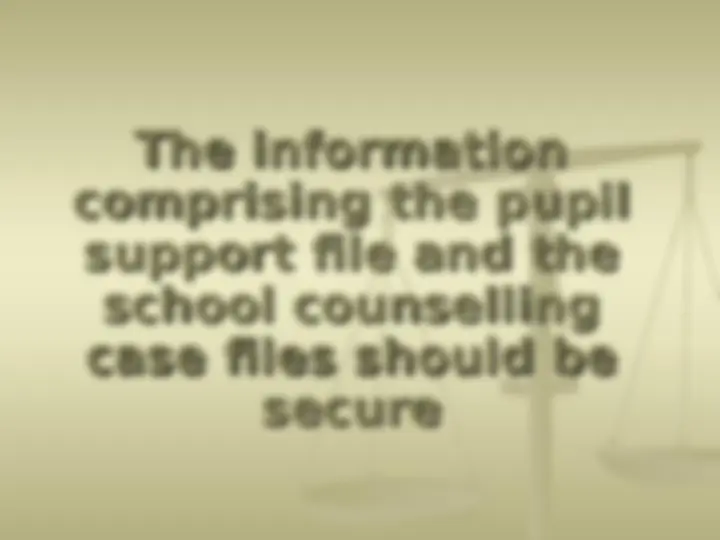
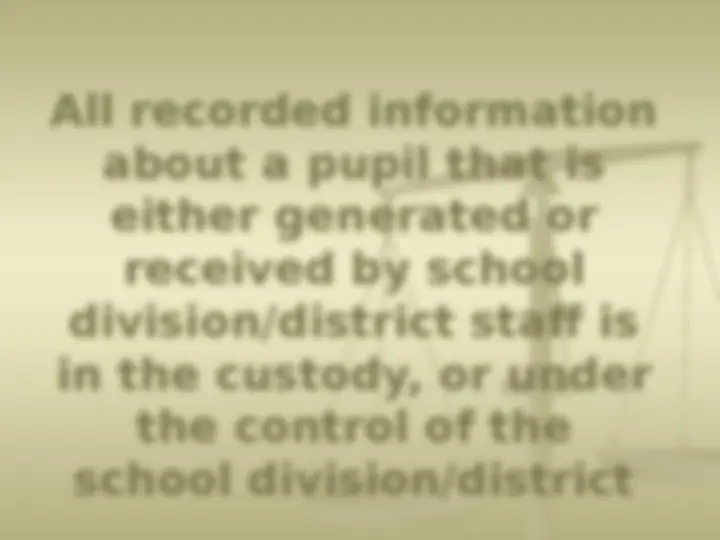
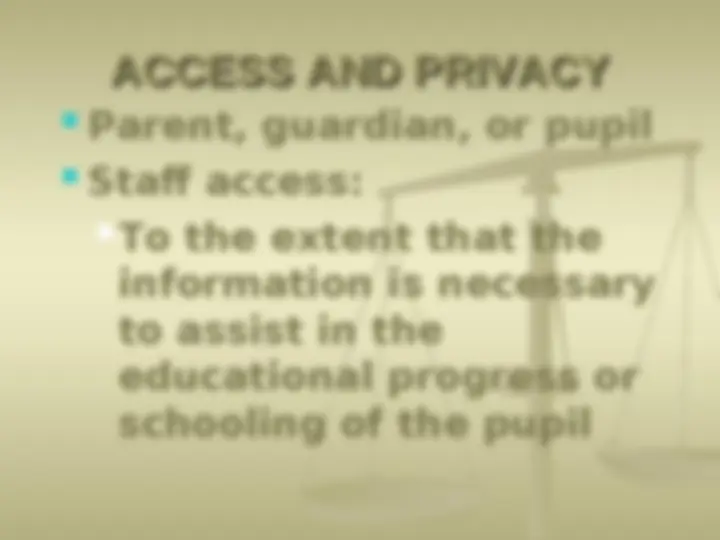
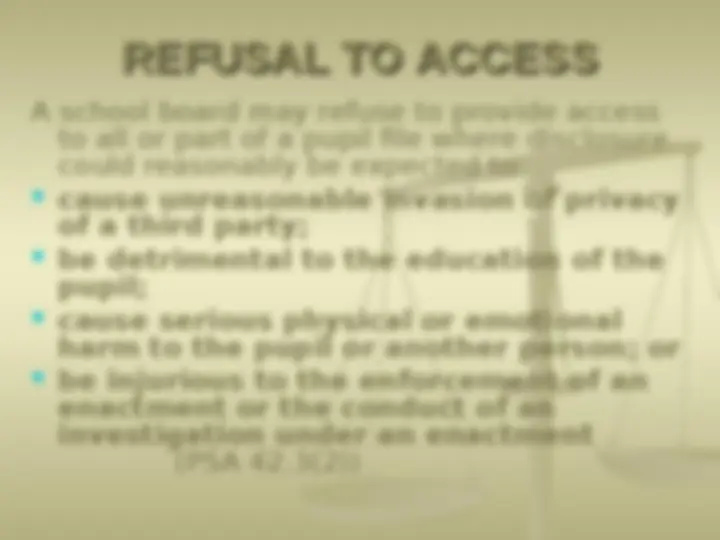
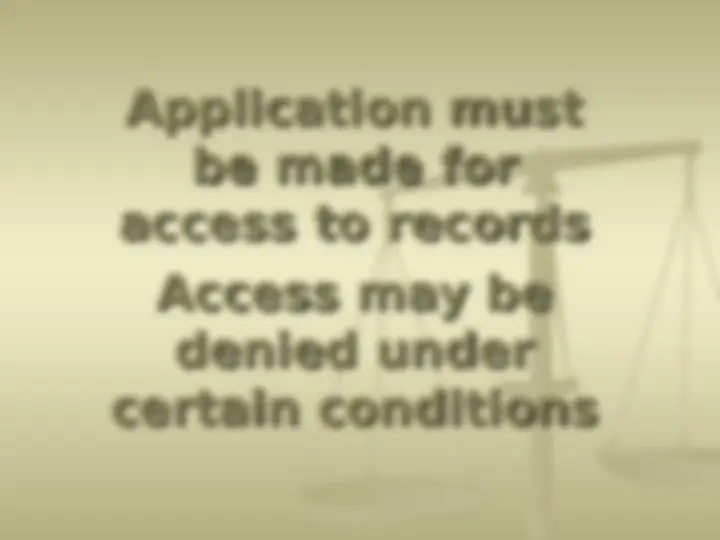
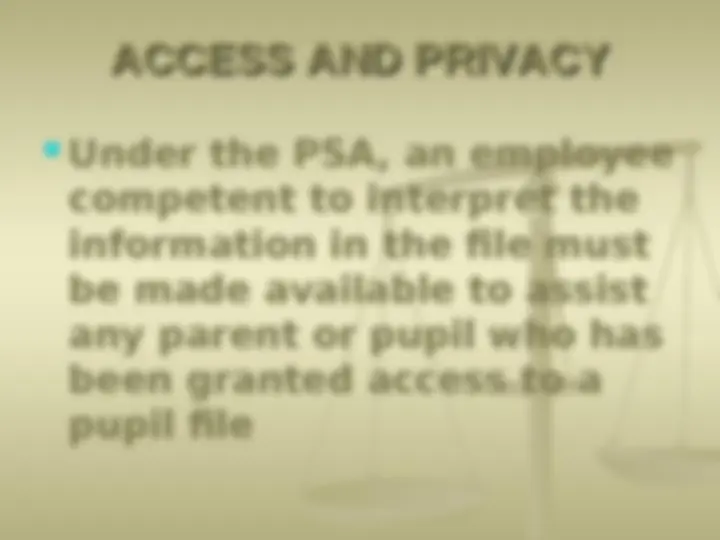
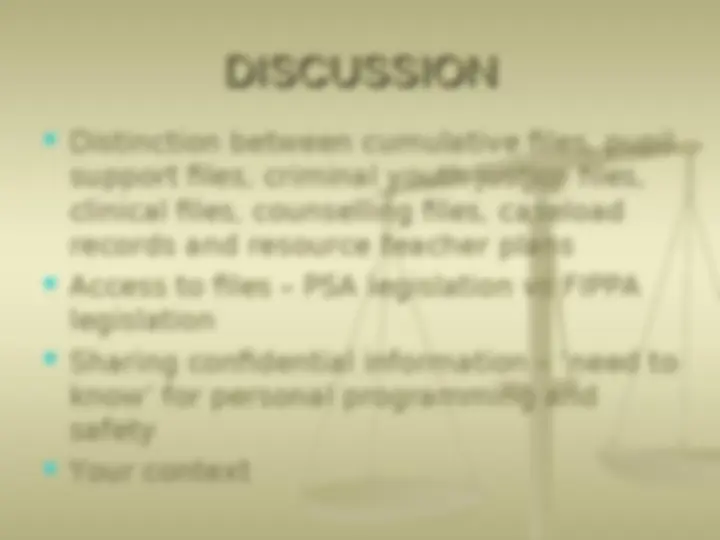
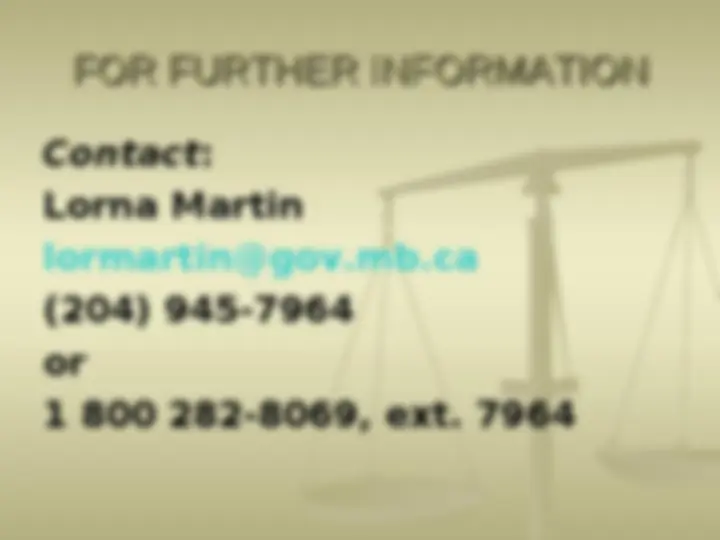


Study with the several resources on Docsity

Earn points by helping other students or get them with a premium plan


Prepare for your exams
Study with the several resources on Docsity

Earn points to download
Earn points by helping other students or get them with a premium plan
Community
Ask the community for help and clear up your study doubts
Discover the best universities in your country according to Docsity users
Free resources
Download our free guides on studying techniques, anxiety management strategies, and thesis advice from Docsity tutors
detailed counseling report on students. includes psych report and tape script
Typology: Lecture notes
1 / 37

This page cannot be seen from the preview
Don't miss anything!






























KEY QUESTIONSKEY QUESTIONS
What do I record?
How much do I record?
Where do I record?
How long do I keep information?
What information can I share?
To whom can I share information?
How do I decide what is confidential and what is shareable?
CASE NOTES – style and formatCASE NOTES – style and format
Write your notes with the expectation that others will read them with a critical eye.
Don’t alter the record after the fact. Strike out the comment and replace it with correction.
Be as specific and precise as possible.
Focus on objective, observable behaviours and statements.
Avoid jargon or diagnostic labels.
Include Client’s name Date Referral information (from, to) Interagency contacts and results Other contacts and results Signature of counsellor CASE NOTES – background CASE NOTES – background
SAMPLESAMPLE CONFIDENTIAL COUNSELLING REFERRAL Date: __________________________ Student Name: ___________________________________ STATUS: CRITICAL Urgent as soon as possible Is the student aware of this referral? yes no Referral by: self peer name___________________________ teacher name___________________________ administrator name___________________________ parent name___________________________ other name___________________________ AREA OF CONCERN: Academic school achievement school leaving attendance course change/timetable study skills subject area concern test taking preparation scholarships post-secondary requirements Behaviour classroom returning from suspension social skills mediation Career making a career/educational choice CHOICES/Bridges/Career Cruising/inventory session resume writing portfolio Personal stress friendship social/emotional finances/money health conflict resolution self-esteem home relations peer pressure gang mental health weight sexuality housing Abuse harassment bullying physical emotional sexual verbal drug/alcohol/substance self Other: ______________________________________________________________ Additional information:________________________________________________ Notes: see reverse side
GENERAL GUIDELINES FORGENERAL GUIDELINES FOR PROFESSIONAL INFORMATION SHARING PROFESSIONAL INFORMATION SHARING PERSONAL information CAN be shared under the following circumstances: With written consent OR To avert or minimize imminent danger to the health or safety of any person OR To report a child who might need protection under the Child Welfare Act OR (^) Where organizations that are subject to FIPPA are involved in a common program or integrated service OR
GENERAL GUIDELINES FORGENERAL GUIDELINES FOR PROFESSIONAL INFORMATION SHARING PROFESSIONAL INFORMATION SHARING (cont’d) (cont’d)
GENERAL GUIDELINES FORGENERAL GUIDELINES FOR PROFESSIONAL INFORMATION SHARING PROFESSIONAL INFORMATION SHARING (cont’d) (cont’d) In the following circumstances obtain more information and/or get advice from a supervisor, consultant or lawyer:
Consent is not provided or refused but there may be a health or safety issue for any individual or groups
To report criminal activity to police (pursuant to FIPPA)
Where there is a demand or request to produce information for a legal proceeding
When a professional code of ethics may limit disclosure
LEGISLATIONLEGISLATION The Public Schools Act (PSA) The Education Administration Act (EAA) The Freedom of Information and Protection of Privacy Act (FIPPA) The Personal Health Information Act (PHIA) The Youth Criminal Justice Act (CJA)
The Acts cover a range ofThe Acts cover a range of issues relating to such issues relating to such matters as... matters as...
The pupil file
Access to pupil files
Refusal of access to pupil files
Types of information that may or must be kept
The “Guidelines on the RetentionThe “Guidelines on the Retention and Disposition of School and Disposition of School Division/ District Records” Division/ District Records” (cont’d)(cont’d) School boards must have a written policy concerning: process and procedures for culling of files procedures for confidential destruction of information file transfer
Every school division/district to appoint an “Access and Privacy” officer.
WHAT SCHOOLS DOWHAT SCHOOLS DO The school is authorized to collect information that relates directly to what schools do. Schools provide educational programs and services supporting the pupil’s educational progress.
INFORMATION COLLECTIONINFORMATION COLLECTION Collect only as much information as is needed for the purpose for which it is collected When collecting directly from the individual, the person must be informed of the purpose and authority for the collection and the name of a contact person.